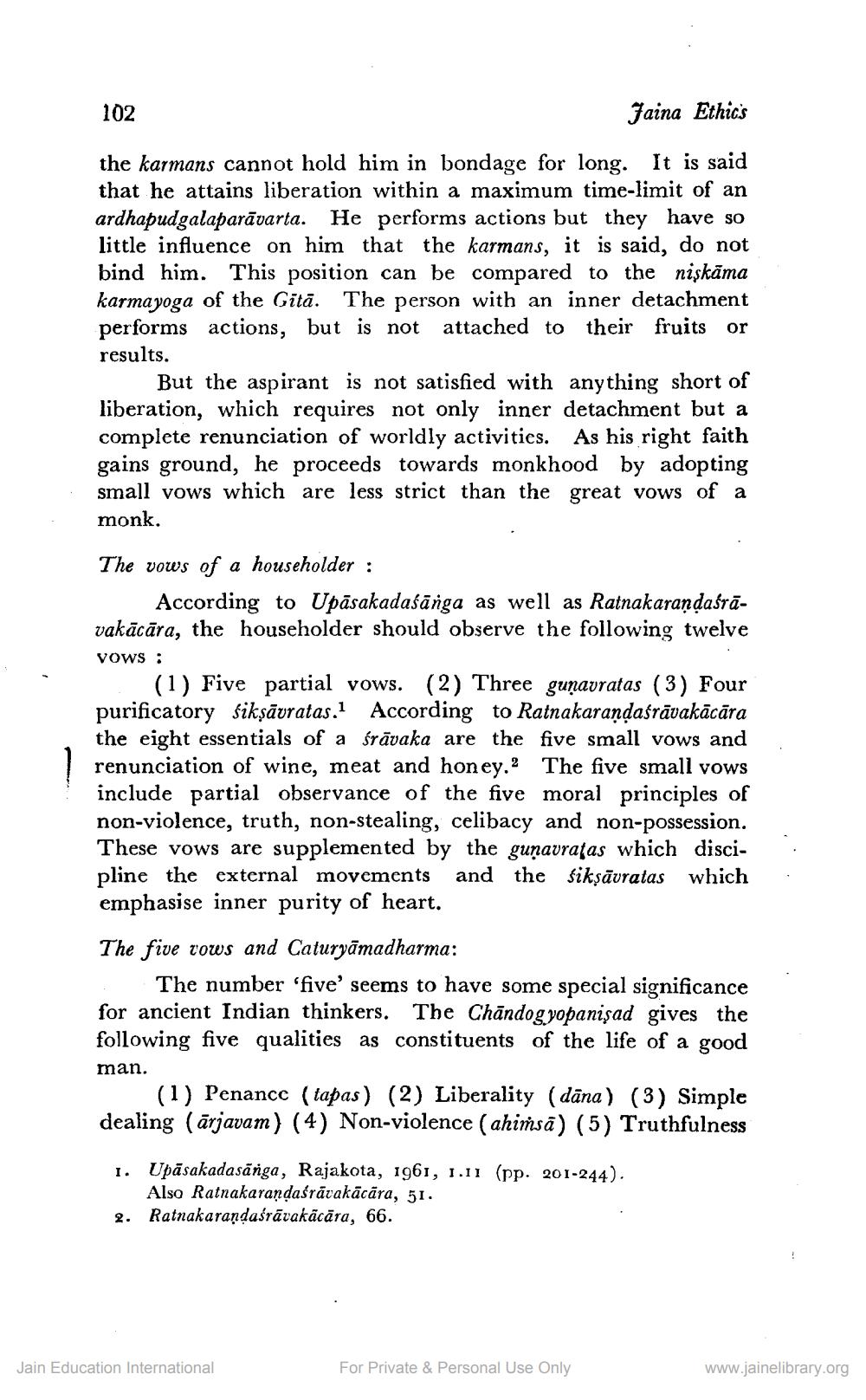________________
102
Jaina Ethics
the karmans cannot hold him in bondage for long. It is said that he attains liberation within a maximum time-limit of an ardhapudgalaparāvarta. He performs actions but they have so little influence on him that the karmans, it is said, do not bind him. This position can be compared to the niskāma karmayoga of the Gitā. The person with an inner detachment performs actions, but is not attached to their fruits or results.
But the aspirant is not satisfied with anything short of liberation, which requires not only inner detachment but a complete renunciation of worldly activities. As his right faith gains ground, he proceeds towards monkhood by adopting small vows which are less strict than the great vows of a monk. The vows of a householder :
According to Upāsakadašānga as well as Ratnakarandafrāvakācāra, the householder should observe the following twelve Vows :
(1) Five partial vows. (2) Three gunavratas (3) Four purificatory śikṣāvratas.1 According to Ratnakaramdaśrāvakācāra the eight essentials of a śrāvaka are the five small vows and renunciation of wine, meat and honey. The five small vows include partial observance of the five moral principles of non-violence, truth, non-stealing, celibacy and non-possession. These vows are supplemented by the guņavratas which discipline the external movements and the sikşāvratas which emphasise inner purity of heart. The five rows and Caturyāmadharma:
The number 'five' seems to have some special significance for ancient Indian thinkers. The Chāndogyopanişad gives the following five qualities as constituents of the life of a good man.
(1) Penance (tapas) (2) Liberality (dāna) (3) Simple dealing (ārjavam) (4) Non-violence (ahimsā) (5) Truthfulness
.
1. Upāsakadasänga, Rajakota, 1961, 1.11 (pp. 201-244).
Also Ratnakarandaśravakācāra, 51. 2. Ratnakarandaśrāvakācāra, 66.
Jain Education International
For Private & Personal Use Only
www.jainelibrary.org




